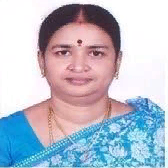International Journal of Education and Management Engineering (IJEME)
IJEME Vol. 10, No. 3, 8 Jun. 2020
Cover page and Table of Contents: PDF (size: 250KB)
Text Summarization using QA Corpus for User Interaction Model QA System
Full Text (PDF, 250KB), PP.33-41
Views: 0 Downloads: 0
Author(s)
Index Terms
Question Answering System, QA corpus, Text summarization, Machine Learning
Abstract
Document summarization is capable of generating user query relevant, precise summaries from the original document for user needs. To reduce the response time summary generation, QA corpus is built for similar questions and answer with help of learning model. It has been trained and tested by Quora duplicate and Yahoo! Answer datasets. The large QA corpus has been dynamically clustered with semantic features paves a way for efficient document’s retrieval. Answers are produced from datasets or generate summaries for unanswerable from the available sources. Results obtained from statistical significance test with hypothesis testing and evaluation with standard metrics proves the significant improvement in generating text summarization using QA corpus. The outcome is better in the producing close proximity of answers for the given user query.
Cite This Paper
K.Karpagam, A. Saradha, K.Manikandan, K.Madusudanan. "Text Summarization using QA Corpus for User Interaction Model QA System", International Journal of Education and Management Engineering(IJEME), Vol.10, No.3, pp.33-41, 2020. DOI: 10.5815/ijeme.2020.03.04
Reference
[1].Rasmita Rautray, Rakesh Chandra Balabantaray&Anisha Bhardwaj ., Document Summarization using Sentence Features, International Journal of Information Retrieval Res(IJIRR), Volume 5 Issue 1, pp.36-47, 2015.
[2].Ming Tan, Cicero dos Santos, Bing Xiang & Bowen Zhou, Improved Representation Learning for Question Answer Matching’, Proceedings of the 54th Annual Meeting of the Association for Computational Linguistics, August, pp. 7-12,2016.
[3].Denis Savenkov & Eugene Agichtein, ‘CRQA: Crowd-Powered Real-Time Automatic Question Answering System’, Proceedings, The Fourth AAAI Conference on Human Computation & Crowdsourcing , Association for the Advancement of Artificial Intelligence, pp.189 -198, 2016.
[4].Dorota Gowacka, Tuukka Ruotsalo , Ksenia Konyushkova , Kumaripaba Athukorala , Samuel Kaski& Giulio Jacucci, Directing Exploratory Search: Reinforcement Learning from User Interactions with Keywords, IUI’13, Copyright ACM, pp.117-127, 2013.
[5].Jan Frederik Forst, Anastasios Tombros& Thomas Roelleke, ‘Less Is More: Maximal Marginal Relevance as a Summarization Feature’, Advances in Information Retrieval Theory, ICTIR, pp. 350-353, 2009.
[6].Farshad Kiyoumarsi, , Evaluation of Automatic Text Summarizations Based on Human Summaries, 2nd GLOBAL CONFERENCE on LINGUISTICS & FOREIGN LANGUAGE TEACHING, LINELT-2014, Procedia - Social & Behavioral Sciences, ELSEVIER, pp. 83 – 91, 2014.
[7].Gunnar Schröder, Maik Thiele &Wolfgang Lehner , , ‘Setting Goals & Choosing Metrics for Recommender System Evaluations ‘, 5th ACM Conference on Dresden University of Technology Recommender Systems Chicago, October 23th, 2011.
[8].Youzheng Wu, Chiori Hori, Hideki Kashioka & Hisashi Kawai, , ‘Leveraging social QA collections for improving complex question answering’, Computer Speech & Language, Volume 29 Issue 1, pp.1-19,2015.
[9].Hiroyuki Sakai & Shigeru Masuyama, ‘A Multiple-Document Summarization System with User Interaction’, In Proceedings of the 20th International Conference on Computational Linguistics, COLING ‘04, C04-1144, ACL Anthology, pp.1001- 007,2004.
[10].Gang Liu & Tianyong Hao, ‘User-based Question Recommendation for Question Answering System’, International Journal of Information & Education Technology volume 2, Issue 3, pp. 243-246, 2012.
[11].Karpagam.K & Saradha.A, “Text Summarization using Machine Learning Approaches for Question Answering System”, International Journal of Advances in Computer and Electronics Engineering, ISSN: 2456 - 3935, Volume 4, Issue 2, pp.1–5, , 2019.
[12].John, A., Premjith, P.S., Wilscy, M ,” Extractive multi-document summarization using population- based multi-criteria optimization”, Expert System Application 86, pp.385–39, 2017.
[13].Sanchez-Gomez, J.M., Vega-Rodríguez, M.A., Pérez, C.J.,”Extractive multi-document text summarization using a multi-objective artificial bee colony optimization approaches”, Knowledge-Based System, 2017.
[14].Al-Radaideh, Q.A., Bataineh, D.Q, ” A hybrid approach for arabic text summarization using domain knowledge and genetic algorithms”, Cognitive Computer, 2018.
[15].Rautray, R., Balabantaray, R.C. “An evolutionary framework for multi-document summarization using cuckoo search approach”, Mdscsa. Application Computer Inform. 14 (2), pp.134–144, 2018.
[16].Litvak, M., Vanetik, N., Last, M., Churkin, E.. Museec,, A multilingual text summarization tool, pp. 73–78, 2016.
[17].Thomas, S., Beutenmüller, C., de la Puente, X., Remus, R., Bordag, S, “Extractive text Summarizer”, Proceedings of the SIGDIAL 2015 Conference, pp. 260–269, 2015.
[18].Abdelkrime, A., Djamel Eddine, Z., Khaled Walid, H. ,“All summarizer system at multilingual single and multi-document summarization” Proceedings of the SIGDIAL 2015 Conference,pp.237–244, 2015.
[19].Litvak, M., Vanetik, N., Last, M., Churkin, E.. Museec,” A multilingual text summarization tool”, pp. 73–78,2016,.
[20].Thomas, S., Beutenmüller, C., de la Puente, X., Remus, R., Bordag, S,,., “Extractive text Summarizer”, Proceedings of the SIGDIAL 2015 Conference, pp. 260–269,2015.
[21].Benjamin Timmermans, Lora Aroya& Chris Welty ,“Crowd sourcing ground truth for Question Answering using Crowd Truth”, Web Science, Oxford, United Kingdom, ACM,2015.
[22].Hiroyuki Sakai & Shigeru Masuyama, ,”A Multiple-Document Summarization System with User Interaction”, In Proceedings of the 20th International Conference on Computational Linguistics, COLING ‘04, C04-1144, ACL Anthology, pp.1001- 1007,2004.
[23].Gunnar Schröder, Maik Thiele &Wolfgang Lehner, ‘Setting Goals & Choosing Metrics for Recommender System Evaluations ‘, 5th ACM Conference on Dresden University of Technology Recommender Systems Chicago, October 23th, 2011.



